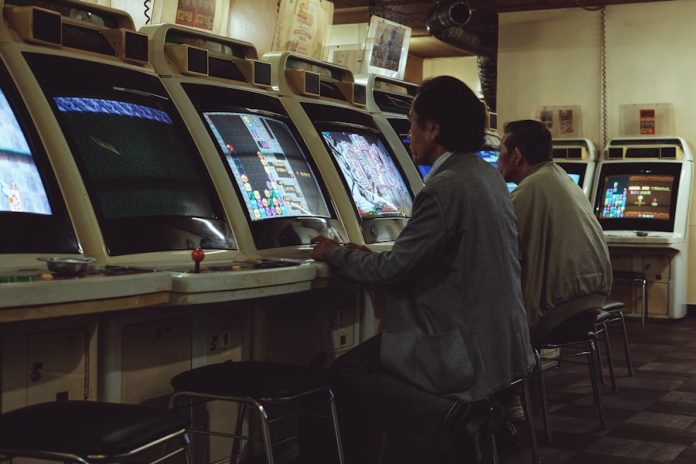
Gambling is more than just betting in many Asian films and series — it’s a lens to explore human ambition, greed, honor, and moral ambiguity. Fans of the genre are drawn to the tension, the glamour, the risks… and the inevitable fallout. According to the StranaBy website, there’s growing international interest in Asian gambling dramas, both classic and new, showing how universal the pull of chance really is.
Standout Films — Classics and Must-Watches
One of the touchstones is God of Gamblers (1989), a Hong Kong film that helped define the glamour and myth around elite gamblers. Over time, this film spawned sequels, spin-offs, and inspired many others. What stands out is how it blends showmanship with emotional stakes: identity, reputation, loyalty. These aren’t just games — they’re tests of character.
From Korea, Tazza: The High Rollers (2006) offers a different flavor. It’s less flashy spectacle and more about the grit of the underworld, betrayal, and personal ruin. The Korean card game hwatu in its plot gives it cultural specificity, which makes the character journeys more compelling.
Japanese cinema adds darker tones: Pale Flower (1964), for example, explores gambling not just as chance but as existential emptiness, obsession, and forbidden glamour. Here the illegal gambling parlors aren’t stages for heroes but backdrops for flawed souls.
What Makes Them Engaging
First, risk, luck, betrayal — common narrative pillars. Gambling settings easily raise tension: stakes are clear (money, reputation, safety), outcomes sometimes swing wildly. The unpredictability keeps viewers hooked. There’s often betrayal of trust, cheating, moral trade-offs. When a character loses, it’s not just money, but identity or dignity.
Second, style matters. Many of these films use lighting, editing, soundtrack in ways that amplify suspense: close-ups on cards or chips, slow motion of collapse, whispers in smoky rooms. The glamorous environments (casinos, VIP rooms) contrast with characters’ internal chaos. Watching a duel of poker cards in a grand hall under red lamps gives weight. And in more recent productions, realistic detail in tech (online gambling, apps, stats) adds credibility.
Third, character arcs often revolve around redemption or downfall. The protagonist is frequently someone who enters gambling for one reason (money, revenge, pride), then gets entangled deeper than expected. Some rise, many fall. Audience empathizes with ambition, fears collapse. The moral cost becomes part of the story.
Series & Recent Entries
While classic films dominate the genre, newer series and streaming entries are beginning to explore gambling in more diverse contexts: online betting scams, psychological addiction, legal/illegal split. These tend to unfold over episodes, so they allow more breathing room for character development, moral ambiguity, and modern tech issues (mobile apps, hacking, regulation).
Recent entries often portray gambling not just as action or spectacle but as a social commentary: what happens when people are lured into debt, fraud, or addiction. Some series depict the corruption around gambling as a crime network; others focus on how technology blurs lines between legitimate gambling and exploitative schemes.
There’s also trend toward realism: more accurate portrayal of rules of games (poker, mahjong, hwatu), understanding of odds, psychological weight of wins and losses. Audiences appreciate when a show doesn’t sugarcoat the cost.
Cultural Context & Impact
In many Asian countries gambling has a complex legal and cultural status: illegal in many places, legal under strict regulation in others. That tension gives filmmakers fertile ground. Underground parlors, illegal dice games, black-market betting are recurring settings. They allow stories about risk not just in financial terms but moral and social ones.
Many films tackle themes of luck vs fate. Is success determined by skill, by chance, by connections? The gambling genre becomes a metaphor. Characters may bet not only with cards, but with loyalty, trust, identity. Some audiences see aspirational value (winning big, beating odds), others see cautionary tales (addiction, losses, betrayal).
Visually and narratively, these works influence popular culture — style of dress, language (“gambler’s code”), iconic symbols (playing cards, mahjong tiles, casino chips). They build mythologies around gamblers: charismatic, flawed, often honorable in their own terms.
Recommendations & Where to Start
If you’re new to this genre and want a curated entry path:
-
Start with God of Gamblers — it’s iconic, energetic, defines much of what came after in Chinese-language gambling cinema.
-
Then try Tazza: The High Rollers for Korean intensity and moral ambiguity.
-
For darker, psychological tones, Pale Flower offers nuance and existential dread.
-
If you prefer modern tech/scam-based angles, look for streaming series or newer films that address online gambling or fraud.
These movies and series let you see gambling not just as chance but as story material: the interplay of charisma, morality, chance, and consequence makes them memorable.

